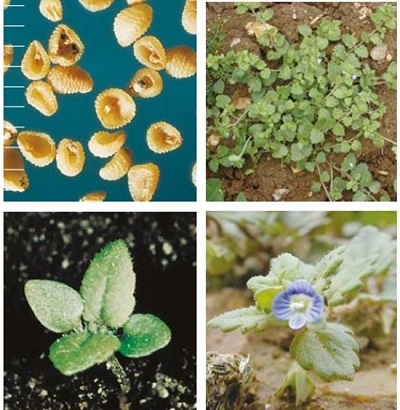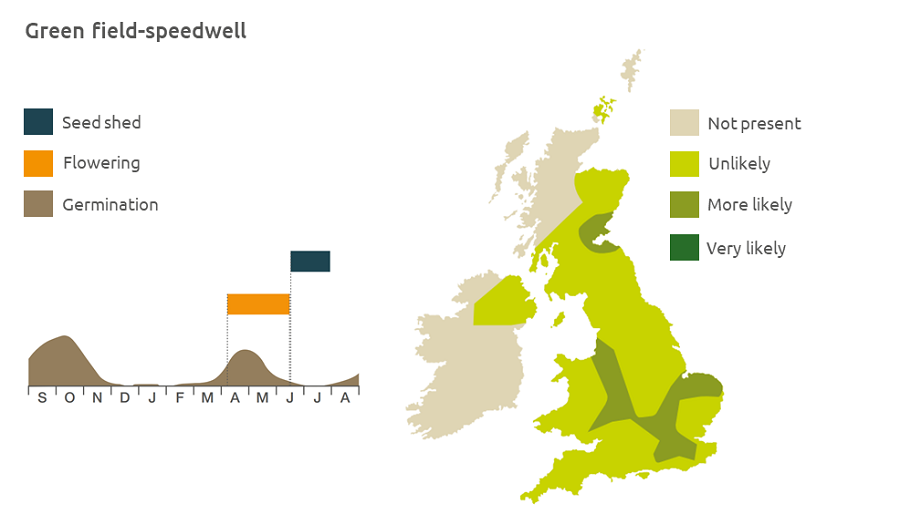- Home
- Knowledge library
- Distribution and biology of green field-speedwell in the UK
Distribution and biology of green field-speedwell in the UK
Green field-speedwell is a UK weed in spring cereals and vegetable crops. Find out how to identify and control it.
Overview
Green field-speedwell (Veronica agrestis) is found in spring cereals and vegetable crops but is not a very competitive weed in vigorous cereal crops. It germinates mainly in spring although some seeds may germinate in autumn. It needs relatively high temperatures for germination so it germinates later than other species.
- It has value to biodiversity
Description
It is a creeping hairy annual, 10–30 cm tall, forming a loose cushion. It has oval pale green leaves with blunt rounded teeth. The small very pale blue flowers are borne on long stalks growing from the leaf axils.
Key features
Fruit: The two-lobed fruit is longer than it is wide, and is covered in many glandular hairs.

Location and life cycle

Geographic distribution
Green field-speedwell prefers cultivated land, gardens or allotments, usually below an altitude of 400 m.
Soil type
It prefers well-drained acidic soils, but may be present on chalky soils where there is surface leaching.
Seed statistics
- Seed longevity: >5 years
- Seed weight: 0.6 mg
- Seeds/flower: 8–16
- Seeds/plant: 1,000–10,000
Management
In row crops it can be controlled by harrowing or hoeing. It does not persist in grass leys.
For advice on herbicides, please speak with your agronomist or adviser.
When was this information last updated?
This page is based on content from the encyclopaedia of arable weeds publication. Since it was first released in 2008, the publication has been redesigned several times but not revised. However, it remains a good foundation for general information on the distribution and biology of weeds.

